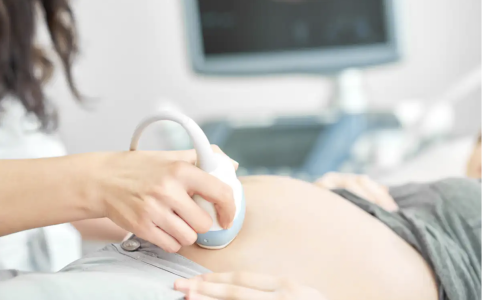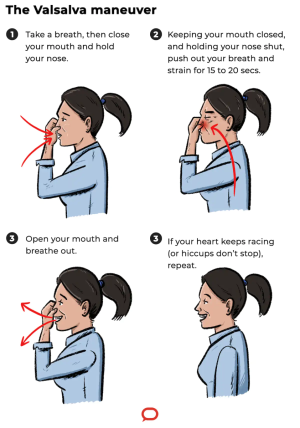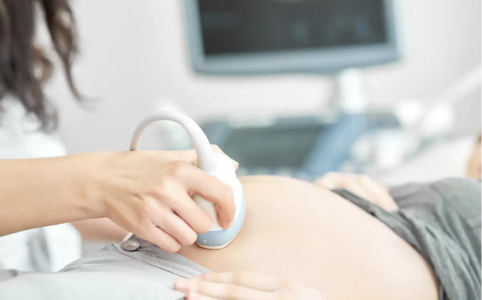SDC Rewards Member
Upgrade yours now
What causes hiccups and how can you get rid of them?
We all get hiccups from time to time, and sometimes they just won’t seem to go away.
Hiccups are involuntary contractions of the diaphragm – the muscle separating your chest from your abdomen, which plays a key role in breathing – followed by a sudden closure of the vocal cords.
The medical term for hiccups is singultus. This derives from the Latin word singult which means “to catch ones breath while sobbing”.
For most of us, hiccups are annoying and don’t last that long. But for some people, they can be persistent, lasting more than two days.
The good news is, there are simple ways to alleviate regular hiccups – and treatments for when they persist.
What causes hiccups?
Hiccups are caused by a reflex arc: a neuromotor pathway that translates a sensation into a physical response. The sensations in this arc come from the brain, ear, nose and throat, diaphragm and organs in the chest and abdomen.The sensation signals travel to a part of the brain which, along with the top of the spinal cord, is known as the “hiccup centre”.
From the hiccup centre, the signals travel back out to the diaphragm and the muscles that lay between your ribs (intercostal muscles), causing them to twitch.
The twitching of these muscles draws air into the lungs and this sudden inhalation makes the opening between the vocal cords, or glottis, close tightly shut. This rapid closure makes the “hic” sound.

Even fetuses get the hiccups. Shutterstock
Anything that affects the arc can lead to hiccups. The most common is stretching the stomach from eating a large meal or drinking soft drinks. This means sensation signals from the stomach can trigger off the reflex arc.
Consuming hot chilli pepper, alcohol, smoking, and over-excitement can also trigger the reflex arc, leading to hiccups.
Hiccups have even been observed in healthy fetuses during prenatal ultrasound checks. In fact, some researchers believe hiccups are a mechanism to help prepare the lungs for breathing shortly after birth.
How long will they last? And what can you do about them?
An attack of hiccups that lasts less than 48 hours is generally unconcerning. Such an attack usually ends by itself.Where it doesn’t resolve by itself, there are ways to suppress the reflex arc. The Valsalva manoeuvre, consuming ice-cold drinks and gentle eyeball pressure are thought to increase the activity of a long nerve (vagus) to the brain.

The Conversation, CC BY-ND
Manoeuvres such as rebreathing into a paper or plastic bag work by increasing the carbon dioxide concentration in the blood. This helps to suppress the movements of the muscles associated with hiccups. However, rebreathing carries a small but serious risk of heart attack so should only be performed under medical supervision.
However there is very limited evidence to show these manoeuvres and interventions work.
When should we get worried about hiccups?
If hiccups last longer than two days, they are called persistent hiccups. If they last beyond two months they are known as intractable hiccups. Persistent and intractable hiccups, known collectively as chronic hiccups, can be quite distressing and may signify a serious underlying cause, so it’s important to see your doctor.People with chronic hiccups will undergo a comprehensive investigation. Their medical history will often give valuable clues to triggers. Certain medications such as anti-epileptic drugs, alcohol, smoking and recreational drug use are all associatedwith hiccups.
As organs in the chest and abdomen are involved in the reflex arc, investigations of these organs such as lung imaging or upper endoscopy (where a tube with a tiny camera is inserted into the throat to view the upper digestive tract), may be required.
One study from France found 80% of patients with chronic hiccups had abnormalities in their oesophagus and stomach, with reflux disease being the most common finding.
Your clinician will also inspect your ear, nose and throat, as irritation of the ear by a foreign body or infection of the throat can be triggers for hiccups.
Imaging of the brain may be necessary, especially if there are concerning signs such as changes in speech and weakness of facial and limb muscles.

Drinking ice cold water helps some people. Giorgio Trovato/Unsplash
How are chronic hiccups treated?
After a thorough investigation, the underlying cause should be treated, where possible.People suffering from hiccups often have problems with gastric reflux, so treatment may include a short course of anti-reflux medication.
Other medications with a strong evidence base that are used to treat hiccups include the anti-nausea drug metoclopramide and baclofen, which is used to treat muscle spasticity (excessive tightness or tone).
There is emerging evidence that gabapentin, used to treat seizures, may also be effective for hiccups.
What treatments might we see in future?
Researchers have recently developed a rigid drinking tube with an inlet valve that requires active suction effort to draw water from a cup into the mouth. This tube has been called forced inspiratory suction and swallow tool, or FISST.FISST is thought to stop the hiccup reflex arc by stimulating the sensory nerves to cause contraction of the diaphragm and glottis.
In one study, of the 249 participants who trialled FISST, just over 90% reported results better than home remedies.
However, the FISST research so far hasn’t compared it to a control group who didn’t receive the treatment, so it’s unclear how much more effective it is than a placebo, or dummy version.
This article was first published on The Conversation, and was written by Vincent Ho, Associate Professor and clinical academic gastroenterologist, Western Sydney University






